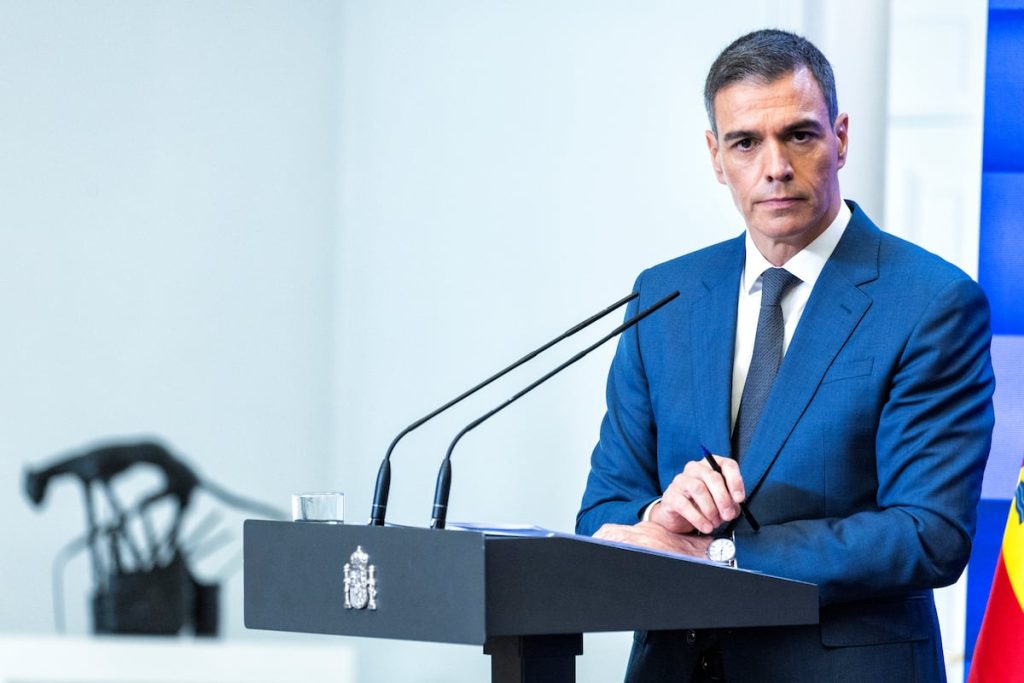The interim leaders of ERC were submitting the agreement with the PSC to their bases for a vote to invest Salvador Illa, which would entail bilaterally changing the model of regional financing. The bases of the PSOE and some territorial federations of the party found out through the press the price that the independentists had set – and the socialists had accepted – to once again put one of their own at the head of the Generalitat de Cataluña. The leaders of ERC campaigned for the yes vote in the past few days, but those of the PSOE, starting with their secretary general and president of the Government, Pedro Sánchez, had so far avoided specific questions about the consequences of the agreement, in order to gain time and not offend ERC sensitivities. The strategy worked, although the close result of the vote (53.5% in favor and 44.8% against, with a 77% participation) shows that there are still many doubts and distrust among the members of Esquerra. The time for vague answers from the Government is running out. The Moncloa opted to measure every word of explanation about the pact to facilitate the vote of the ERC militants. Government sources assure that, once the investiture is agreed, the Government will provide the pedagogy that has been lacking so far on the Catalan economic agreement, which the First Vice President and Minister of Finance, María Jesús Montero, had publicly ruled out until a few days ago. This has sparked criticism from several party barons.
The Government was determined not to interfere in the voting of the ERC bases. To repeated questions from journalists, the minister spokesperson, Pilar Alegría – one of those who had firmly rejected the idea of the agreement for Catalonia – refused to clarify on Tuesday whether they even endorsed the content of that pre-agreement with ERC – “out of respect” for the parties that had been involved in the negotiation, she said – although it seemed to them an “extraordinary piece of news”, “the triumph of politics”, the “revolutionary” result of “dialogue” between different parties. Sánchez also preferred to divert the focus from the counterparty and focus on the prize, Illa’s investiture with the votes of an independentist party, meaning the burial of the process. In that journey, the Government sacrificed its coherence and internal cohesion of the socialists, because the discomfort and doubts in the PSOE extend far beyond the usual critics, such as the president of Castilla-La Mancha, whom Sánchez mocked: “The news would be if Emiliano [García-Page] held a press conference to support the Government,” he said.
In the long road of obstacles to the execution of that pre-agreement that was delayed – more than four months have passed since the elections for the presidency of the Generalitat – the first was the approval of the bases of Esquerra. And stumbling was not only possible, but probable, when the independentist party is awaiting a congress to resolve its leadership and had just turned red when it learned that the infamous campaign against the Maragalls, mocking the cruelest disease, Alzheimer’s, had come from within its ranks. Aware of the delicate situation of their potential investiture partner in Catalonia, the Government and the PSC had deliberately let ERC sell the content of the agreement and, therefore, appropriate the famous story, that tool politicians use to try to convince public opinion that they have made a controversial decision for a greater good. The vote of the Esquerra bases puts an end to that phase of unilateral explanations. The Government, the PSC, and the PSOE will have to clarify from now on whether they fully share the content of that pre-agreement or if they aspire to change it, using the safeguards included in the text, such as the necessary modification of the law that regulates regional financing, the LOFCA, which requires a parliamentary majority that is by no means guaranteed today. After surpassing the necessary step to obtain the approval of ERC, the most difficult lies ahead, the tons of pedagogy that will be needed to either explain the penultimate change of opinion of the Government or convince ERC that they are unable to comply 100% with the content of that agreement due to overriding reasons, as Junts warned. When the Puigdemont party warned of the risk of making a “Spanish nationalist” president of the Generalitat, it was not just sending a message to Esquerra, their rival in Catalonia, but also to the President of the Government whose investiture they supported in Madrid. Today, their seven votes are worth more.
The most concerning issues are those that occur closer to home. To stay informed, subscribe now. Continue reading.


